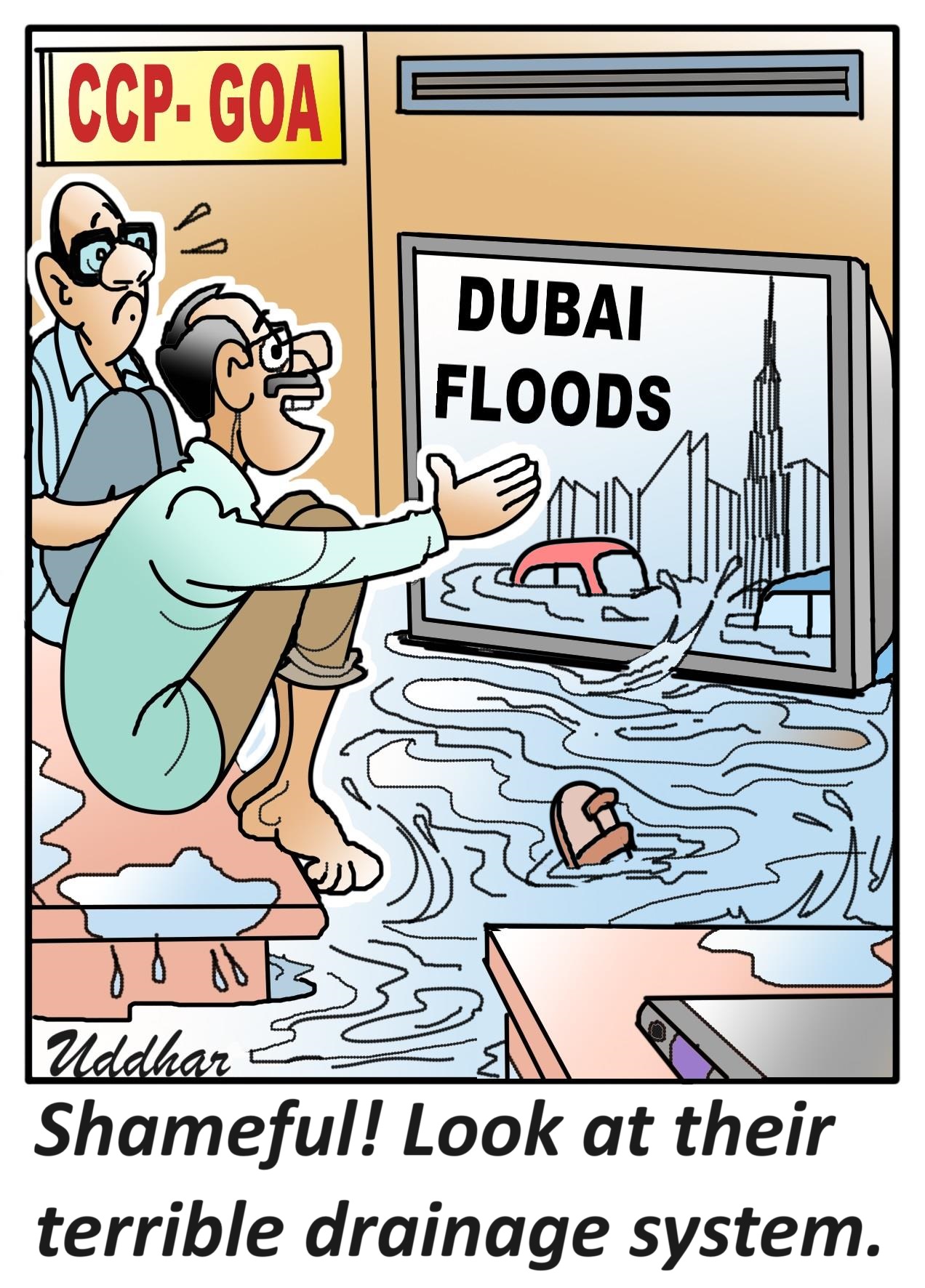
Victor Ferrao
The social imaginary of our people has changed. Some scholars think that social imaginary of rational actors work to maximise utility. Although, democracy has a noble goal: inclusion. It has become pragmatic in a caste laden society like India. Our democracy is rigged by economic lobbyists who instrumentalise Hindu faith, culture, castes and nationalism. Often policies of our Government appear to bend backwards to benefit their financers. The farmer's discontent and agitation is a case that is pointing in this direction. Same is true about the people of Goa who are vehemently rejecting the three linear projects. Goans can no longer hold their nose and wait for the promises of inclusive democracy. The political democracy can no longer hide economic authoritarianism and cronyisms.
Take the case of the sky rocketing prices of petrol. No one can take it with a 55 inch chest. In our innocent search for goodness, we are slowly realising that we have fallen from the frying pan into the fire. Today we cannot be residents alien to our democracy. We are all starting to belong to the story of our democracy. The ethics of democracy seems to have seized us and people in Goa are rightly resisting development that is forced on them.
We have been ruled by power elites who promise greater inclusivity but failed to deliver on its Utopian promises of inclusivity. In recent days, inclusivity has remained a distant dream. Exclusion has fast become an order of the day.
With the exorcism of some faith communities, tribals, dalits and women from the definition of people of India, we seem to be facing a reality where the ruling elite and its cronies are using democracy in destructive ways. We all aspire for what we deem as good. But unfortunately, the instrumental reason that only values means and does not question the nobility of our ends leads us to use democracy for selfish ends. Honorious of Autun, one of the scholar monks of high Middle Ages seems to aptly describe us when he says. ‘As long as humans aspire, they will be capable of corrupting the object of their aspiration’. There are always ways of corrupting what we deem as the best. Unfortunately, Hindu nationalism seems to be suffering this fate. The drama of inclusion in the democratic destiny is an illusion. But our majority community is yet to discern it. Their political inclusion does not offer economic inclusion. The three linear projects in Goa are only using the resources of the people of Goa as raw materials for the economic lobbyists to generate wealth. Our democracy has become a fantasy. It is high on promises, hate and exclusion and less on real inclusive integral development and respect for dignity of every citizen.
The Television debates at night have increased the decimal of noise and we seem to enjoy it without knowing that everything is going crazy and that we are fast losing control over our economic destiny. Our insecurities manifest when we respond with apparently stage managed reaction that ends us in drawing the attention to some isolated tweets that might otherwise remain forgotten.
The long reigning politics of censorship has now crossed international borders and India is not looking great in its light of the dramatic arrest of young student climate activist, Disha Ravi. News laundry, journalists have shown to the dismay of Delhi police that they have closed their eyes to another ‘tool kit’/ hate machine, the Hindu ecosystem that is being used to manufacture hate and whip up communal division and bigotry. It is sad to see our great democracy seems to steadily becoming a police state. The fact that there are claims of a reputed US forensic firm that the evidence was planted in Rona Wilson’s, computer, the accused in the Bhima Koregao violence by an attacker over two years should send shivers down the spine of most right thinking Indians.
The politics that seems to be ruling its day can be viewed as politics of recognition. Recognition is not a courtesy that we owe to people. It is a vital human need. If we step back and mark a distance and scrutinise the dominant political discourse in our country, we can discern a thriving discourse of recognition and identity. A simple analysis in this context will manifest us that what we deem as honour is ruling the day. Right from the ancient times, honour is linked to inequalities.
Politics of recognition that is about dignity of the human person is emancipative while the one that is about honour of person, culture, tradition, faith can be oppressive or at least provide cover fire power to exploitation. This means a politics of recognition that is bestowing dignity is compatible with the welcoming and secular ethos of our civilization as well as our constitutional democracy. This is why we may have to critically discern what is politics of honour and politics of human dignity and resist our democracy from being hijacked by politics of honour.
Ethics of democracy is one of equal recognition. This means democracy is a politics of inclusive recognition. It is a politics that dignifies every human being. Therefore, a politics that d-dignify migrants, tribals, lower castes, some faith communities etc, cannot be democratic. Unfortunately, our democracy is weakened by politics of honour. It operates to cover the loot of the economic resources of our country by the power elites who have been lobbying force with the powers that be. Politics of honour is a shallow moral response, one that protects pride of the individual, community, nation without putting its costs under a profound moral calculus. This is why to be proud Indians, we have to hate other Indians who are demonised. Such a politics of honour singularises the measure of being Indians. It is easy to deduce who is not Indian enough. This is the reason we have to critically embrace politics that bestows dignity on all Indians and thus, work to restore the dialogical character of inclusive ethics of democracy.
(The author is Professor of Rachol Seminary)
